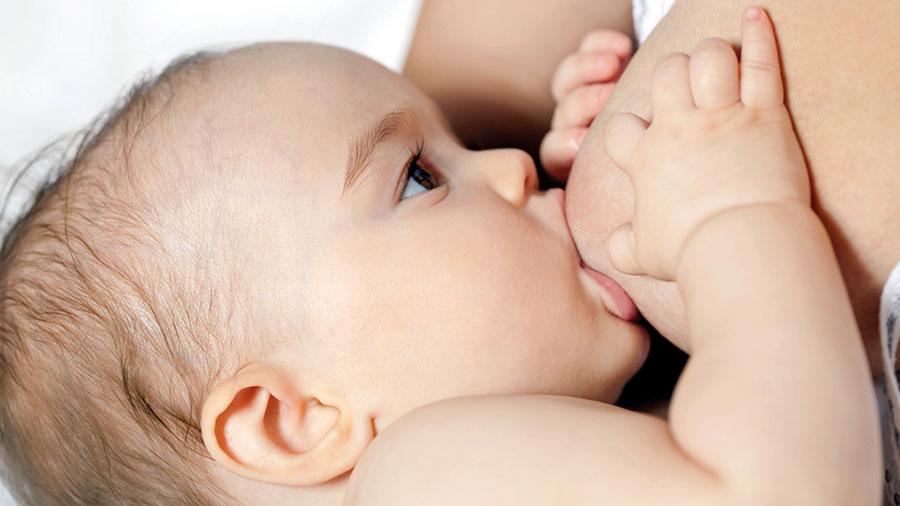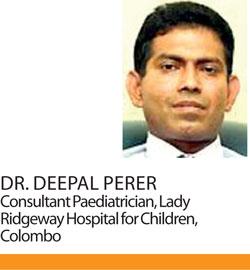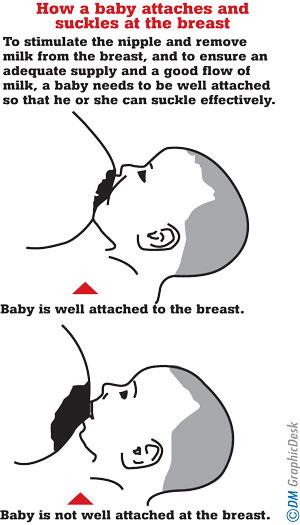02 Aug 2019 - {{hitsCtrl.values.hits}}

 Some of the best things in life are given free of charge. Breast milk is one such invaluable gift that a mother can give her baby. Not only is it free and given with love, breast milk has many advantages to the mother as well as for the baby. The time that mothers were discouraged from breastfeeding children is long past and the field of healthcare is trying to create a society where breastfeeding is encouraged and all mothers including career women are given the opportunity to breastfeed their children.
Some of the best things in life are given free of charge. Breast milk is one such invaluable gift that a mother can give her baby. Not only is it free and given with love, breast milk has many advantages to the mother as well as for the baby. The time that mothers were discouraged from breastfeeding children is long past and the field of healthcare is trying to create a society where breastfeeding is encouraged and all mothers including career women are given the opportunity to breastfeed their children.
Sri Lankan healthcare system has achieved much in the goals of supporting breastfeeding. This week, in celebrating ‘World Breastfeeding Week’, we shall explore the importance of breast milk in depth. Joining us in our discussion is Dr. Deepal Perera, Consultant Paediatrician, Lady Ridgeway Hospital for Children, Colombo.
Milk Production
Breast milk is the major source of nutrition and energy in a new born catering to his individual needs. Two hormones are involved in the production and expression of breast milk. Prolactin is the hormone which causes production of milk in the breast tissue and is secreted during pregnancy. Another hormone called oxytocin is produced following the birth of the child, stimulating the release of milk from the breast tissues where it is stored.
Colostrum
The milk that is produced during the first few days immediately following birth is called colostrum. It is thick and yellowish in color. After the first few days it becomes more light in colour and watery in consistency. It contains all the nutrients that the baby needs, including proteins, energy and micronutrients as well as adequate water. Colostrum contains a large amount of immunoglobulins or proteins fighting infections. Hence colostrum acts as a shield against many possible infections that newborns are susceptible to, since their immune system is not mature at that stage to fight alone. Therefore the practice of discarding the initial yellowish milk is strongly discouraged.
Breastfeeding after birth
World Health Organization now recommends that every baby should be exclusively breastfed until he is six months of age, before starting on complementary feeding. This means that the baby does not need any other sustenance such as water or other concoctions except for medicinal syrup prescribed by a doctor, during this time. This is because almost all the nutrients needed for the baby’s growth during the first six months are contained in adequate amounts in breast milk. Certain vitamins like vitamin K are found to be lacking in breast milk, but these are given as supplementation to the baby at birth and later.
It is recommended that a newborn should be breastfed within one hour immediately after birth to get the maximum benefit. Not only does it improve the bond between the mother and the baby, the action of suckling releases a hormone called oxytocin, which helps contract the womb after birth. Therefore the risk of major bleeding in the mother following birth becomes less with early breastfeeding.
There are several positions that a mother can choose to breastfeed a child comfortably. In each position however, proper attachment of the baby to the breast is needed. The baby’s mouth should cover not only the nipple, but the areola region of the breast as well. This is because the majority of the ducts releasing milk are situated in the areola.
Having not enough breast milk for the child is one of the major complaints of a new mother. The mother is advised to breastfeed, even if very little milk is produced at a time. This is because the hormone released during the suckling of a baby increases production of milk with time.
Advantages to the baby
Research reveals that the babies who are exclusively breastfed in the first few months have a lesser risk of asthma, obesity as well as leukemia later in life. Breastfed babies are much less likely to contract infections, especially those of the respiratory tract and diarrheal illnesses when compared with the bottle fed babies.
In addition, it is found that breastfed babies have higher IQ levels and better vision as adults, when compared with other children.
Advantages to the mother
While a mother breastfeeds her child in order to give him the beneficial effects of the breast milk, there are advantages to the mother’s health as a bonus of breast feeding. It is found that women who breastfed had less risk of breast and ovarian cancer later in life. Research states that for each year a mother breastfeeds, her risk of developing breast cancer falls by 6 per cent.
It also allows a woman to achieve the pre-pregnancy weight sooner, while reducing the risk of obesity and other non- communicable diseases like diabetes later in life.
Breastfeeding will temporarily halt a woman’s menstrual cycle, acting as a method of birth control, but this is not always reliable. Therefore, the use of a suitable method of birth control following medical advice is suggested.
The Sri Lankan situation
Our healthcare system has achieved major success in its goals when it comes to breastfeeding practices, placing Sri Lanka at the top of the list in the countries with the best breastfeeding practices throughout the world. At least 9/10 children born in Sri Lanka are breastfed within the first hour, and 99% of the Sri Lanka are breastfed at some point in their lives.
Considering all the advantages of breastfeeding, healthcare systems worldwide are promoting women to breastfeed their infants. Many legislations and laws have been brought forwards to promote breastfeeding and to support women who breastfeed. Baby friendly hospital initiative brought forward by the WHO to promote successful breastfeeding and 4 months of paid maternity leave for working women to breastfeed their children are some of them.
Complementary feeding
After six months of age, the nutrients in breast milk alone become insufficient to fulfill the requirements rapidly growing baby and gradual introduction of other food has to be done.
If delayed for much longer, the child may eventually develop nutrient deficiencies.
Breast milk can be continued along with solid food until around 2 years of age and play an important role in the child’s diet as a source of energy and nutrients.
Breast milk vs. cow’s milk
As we discussed, breast milk is tailor-made for a human child’s needs. Percentages of components in cow’s milk are different to that of human milk and therefore do not cater to the exact requirements of a human child. Furthermore, growth of the child as well as his current state of health affects the production of breast milk, so the components of the breast milk produced by each mother is different, to suit the needs of her child.
There are a few instances that breastfeeding a child is not possible. When the mother has passed away soon after birth, in case of adoption and when the mother is on certain medication like anti-cancer drugs are a few examples. A doctor’s opinion should be sought before starting the child on formula milk in these instances.
Seeking support
When a mother starts working at the end of the period of her maternity leave does not mean that she has to stop breastfeeding her baby. Milk can be expressed and preserved in a refrigerator to be given to the child safely, even when the mother is not present during the day time.
But bottle feeding the child using artificial teats is strongly discouraged, according to Dr. Perera. This is because as suckling from a teat is much easier than breastfeeding, the child will get used to the teat, which would make him reluctant to breastfeed.
Many first time mothers have concerns when it comes to breastfeeding. But you needn’t worry incessantly, as support is available if you know where to look for it. There are healthcare workers specially trained to help new mothers when it comes to the problems that they face with regards to breastfeeding. There are trained nursing officers in many hospitals to help mothers in their breastfeeding technique. Seeking the help of your local midwife about the concerns that you have regarding breastfeeding your child can be done after being discharged from the hospital.
Support from the family members play an important part in helping the new mother adapt to her role. Providing adequate nutrition to the mother while she is breast feeding and keeping her happy and stress free by sharing her work load will go a long way towards the making of a happy and healthy child.
21 Dec 2024 21 Dec 2024
21 Dec 2024 21 Dec 2024
21 Dec 2024 21 Dec 2024
21 Dec 2024 21 Dec 2024
21 Dec 2024 21 Dec 2024